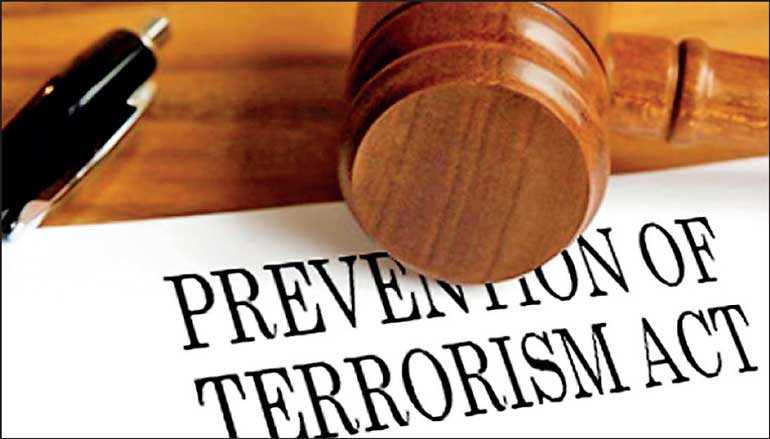Monday Feb 16, 2026
Monday Feb 16, 2026
Friday, 5 April 2019 00:00 - - {{hitsCtrl.values.hits}}

The strongest argument to my mind against a counter-terrorism law is that the state of being anti-terror is a terrible choice of status quo—for any society, by any state.
It’s true that terrorism can be ‘narrowly’ or ‘objectively’ defined; or consistently with what international law requires of a country. But the question remains for Sri Lankans to answer, in line with their own experience, of what anti-terror and public security laws enabled in the past decades of this island’s history. 
The laws to be done away with also had their definitions, and though broad, plenty of conduct that fell within their broad ambit still somehow escaped the full force suggested in law. The new law being narrower in definitions, would it surprise an expert if others wondered what more could slip through unpunished? And what wouldn’t?
It’s true of all the current top-most leaders that they were part of or presided over a government that abused the anti-terror and public security laws. Some of them allegedly presided over torture operations in person when they were younger. I’ve personally seen a police report from the early ’90s that declared an entire family massacred in their home as ‘State loyalists’, which finding also seemed to conclude the investigation.
IGP circulars from the ’90s abound, instructing officers to follow standards when profiling Tamil motorists during spot checks. It is within our experience (and the world over, honestly) that anti-terror law becomes part of everyday reality. Particularly detrimental to a society that is still healing many of its ills.
Existing criminal law, including criminal procedure, ought to be enough. It is not. But this may be because the existing general law still stems from a 19th century procedural code amended piecemeal over the decades, usually as expedience dictated. (Much like where the PTA came from.)
There’s absolutely no reason why some of the more innovative features of the proposed bill should not be enacted as a matter of general criminal law. For example, the CTA redefines (or specifies) the role of the Human Rights Commission in novel ways—what if they were extended in principle to general criminal law, too? And why not?
Pigeon-holing a specific role for HRCSL to play in counter-terrorism contexts blatantly admits that persons suspected in such contexts are peculiarly vulnerable to abuse. Do we then recognise this, and mechanise it, too? This is precisely what CTA does.
The general law prohibits the waging of war against the State. In less ambitious terms, it also prohibits mischief, including mischief to public property. It already prohibits conspiracy, lack of diligence on the part of local communities and individuals, as well as the failure to report suspicions of criminality.
This is in addition to a whole network of other offences and procedures in general law that helps prevent or punish political violence in a society. What new concept of terror do we need? Better put, what new power of the State to conceptualise terror do we need? We ought to shudder at the thought; it should be terrifying.
Amend criminal procedure generally, and bring it to the 21st century (and beyond). Address social causes for violence, especially where the State is complicit or were participants in that violence. Repeal PTA. But reject CTA, too.
– A concerned citizen